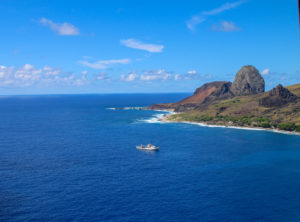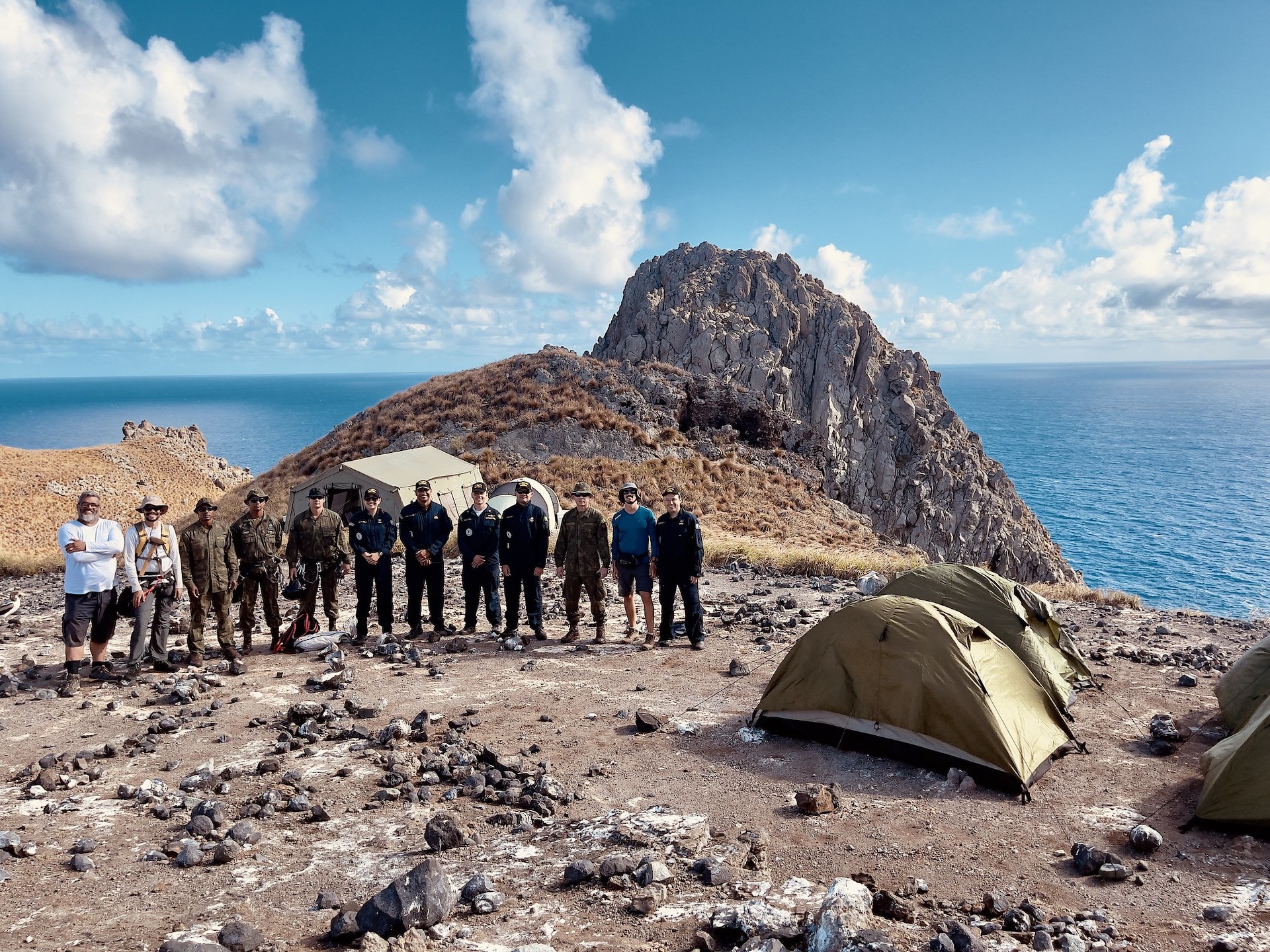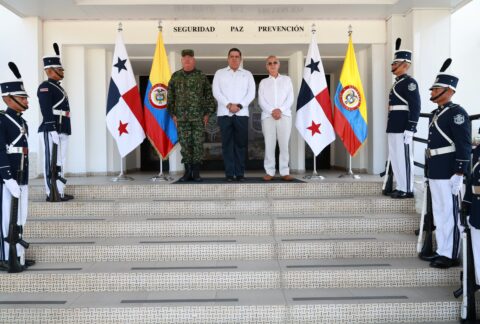In the first trimester of 2022, the Brazilian Navy (MB) carried out a scientific expedition to islands of the South Atlantic Ocean, with the objective of studying and safeguarding Brazilian jurisdictional waters and their multiple extraordinary resources. The month-long trip, carried out on board the Almirante Graça Aranha hydro-oceanographic ship, had a crew of 116 people, including military personnel and civilian researchers.
The initiative was considered unprecedented because it was the first time that military and researchers spent the night on Martin Vaz Island, located 1,550 kilometers off the coast of Rio de Janeiro, at the tip of a chain of submerged volcanic mountains. It is the easternmost territory of Brazil — a region of interest to the country due to its strategic location and riches.
To access the island’s high plateau, at an elevation of 180 meters, the crew used a helicopter and relied on the help of marines to move around using mountaineering techniques and to set up camp. During their stay, researchers collected rocks and soil samples for later laboratory analysis and performed bird banding, “which will allow genetic, ecological, health and/or pollutant contamination studies to be carried out,” the MB told Diálogo.

According to researcher Lucas Guimarães Pereira Monteiro, from Rio de Janeiro State University, research in Martin Vaz is rare as the site is difficult to access. “If it weren’t for the Brazilian Navy, I wouldn’t have the slightest ability to camp and carry out the research, which consists of studying the volcanic rocks of the island, which is about a million years old,” the researcher said.
The MB also highlighted the implementation of the geodetic mark (objects placed to mark key survey points), which allows Brazil to better establish the limits of its Exclusive Economic Zone (EEZ). “The potential of this space called the Blue Amazon [Brazil’s EEZ], in addition to the responsibility to protect it, leads us to study it focusing on four aspects: economic, environmental, scientific, and sovereignty. It’s an area that covers 5.7 million square kilometers,” the MB said.
The expedition also included a visit to the island of Trindade, 49 kilometers from Martin Vaz, where the MB has a permanent oceanographic station with 36 military personnel. There, researchers continued to collect soil materials and studied animals.
“To continue acquiring knowledge for future work, the efforts of the institutions that participate in scientific expeditions like this one cannot be compromised, because environmental preservation, research, the development of science and technology, and the guarantee of our sovereignty are at stake. This requires continuous work and a constant presence in the most extreme and inhospitable places of our territory,” said MB Commander Marcelo de Abreu Souza, commander of the ship, according to an MB release.
The expedition is part of a set of programs of the National Policy for Sea Resources’ Sectorial Plan for Sea Resources. These are actions that “contribute significantly to the production of important scientific knowledge and to fostering a maritime mentality in Brazilian society, as well as expanding and consolidating the training of human resources in ocean-related activities,” the MB said.









